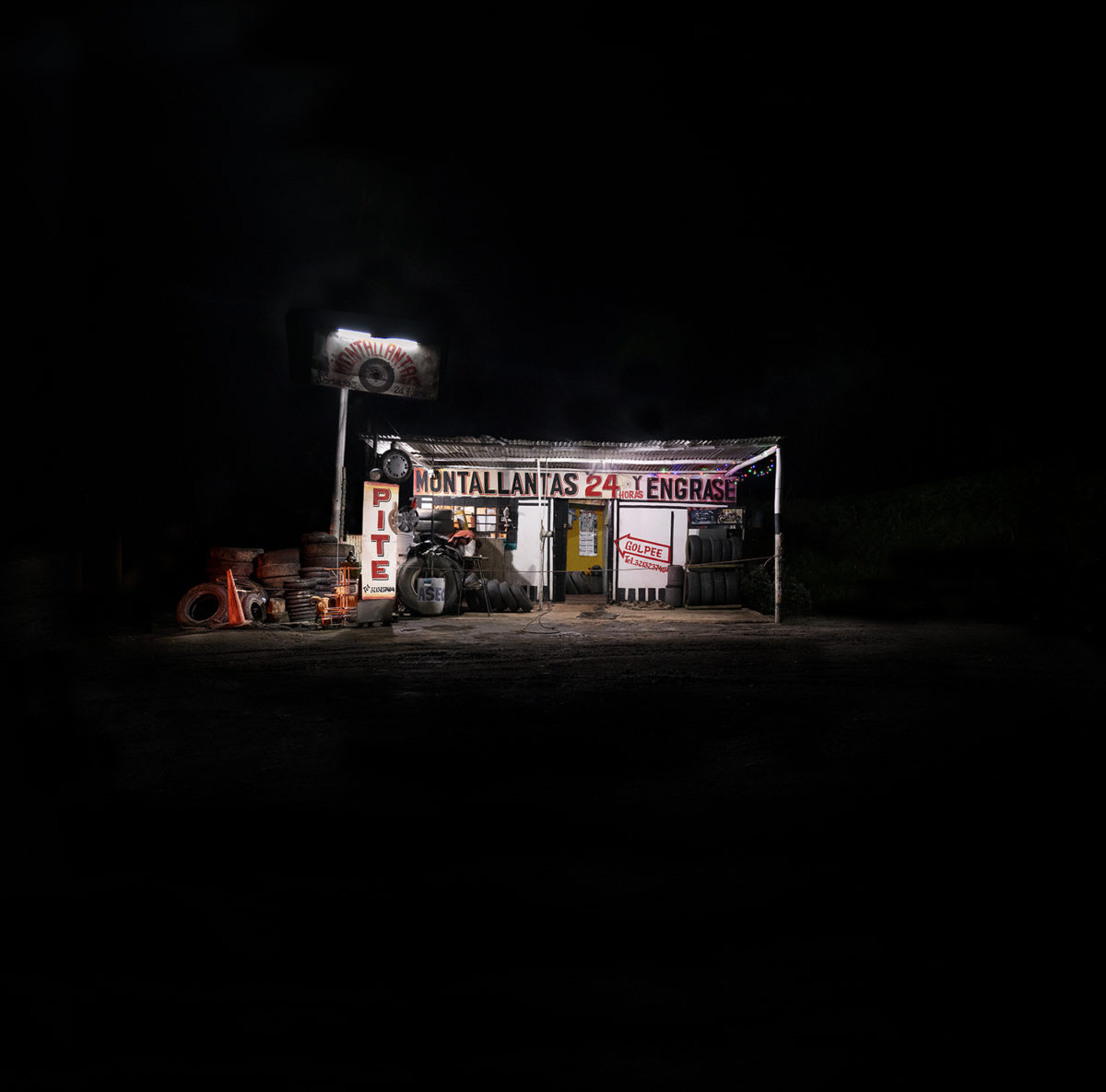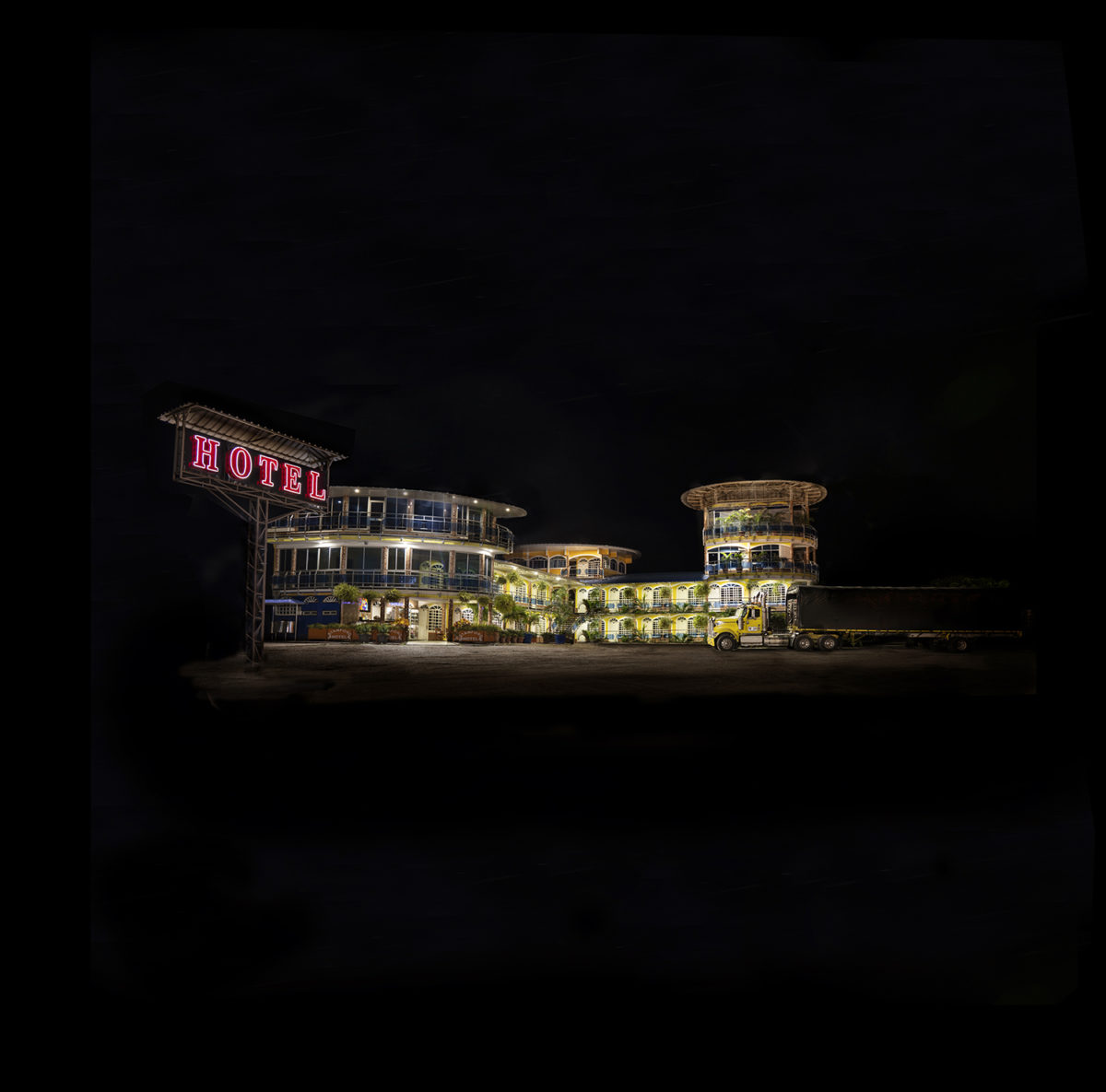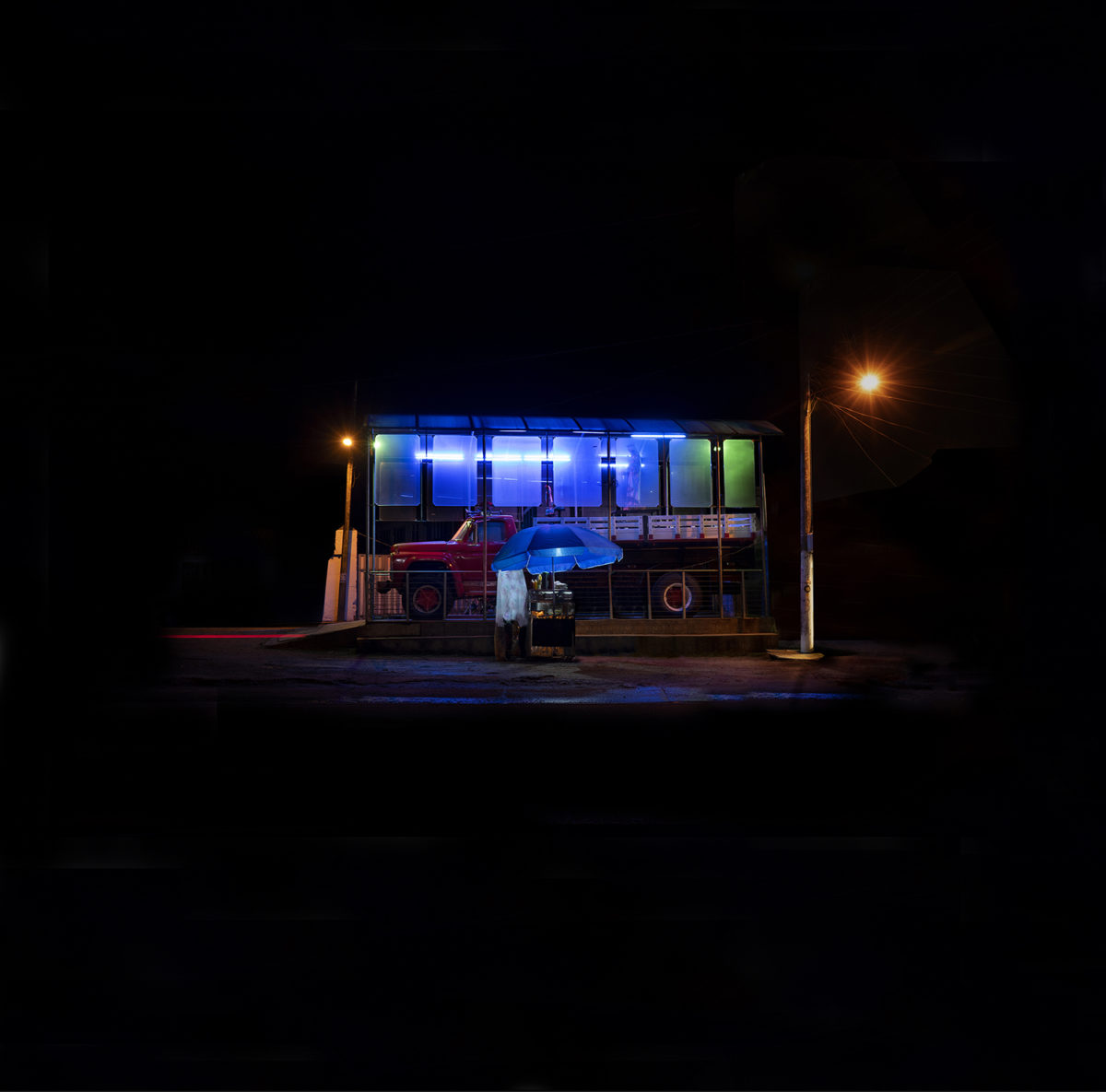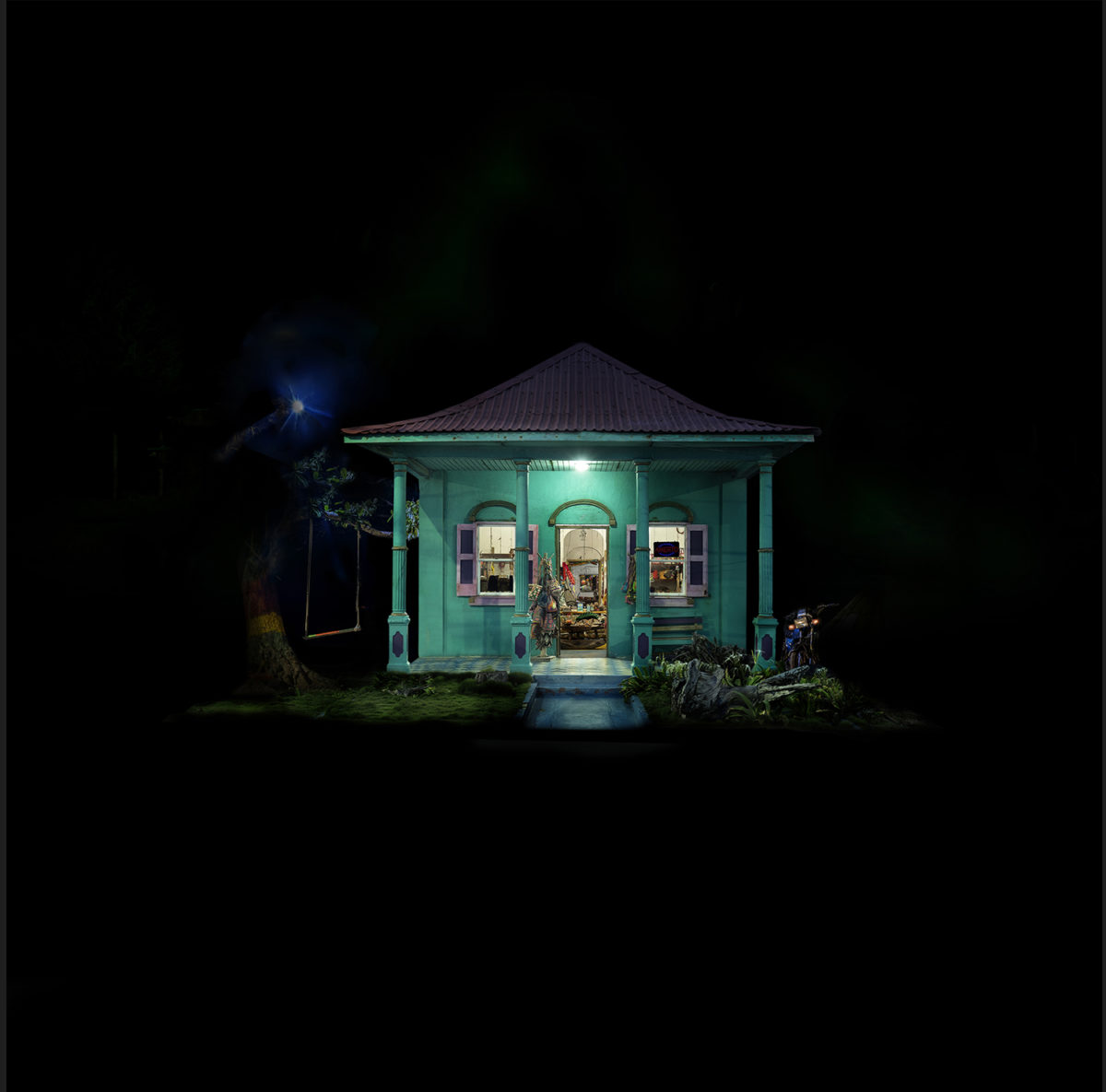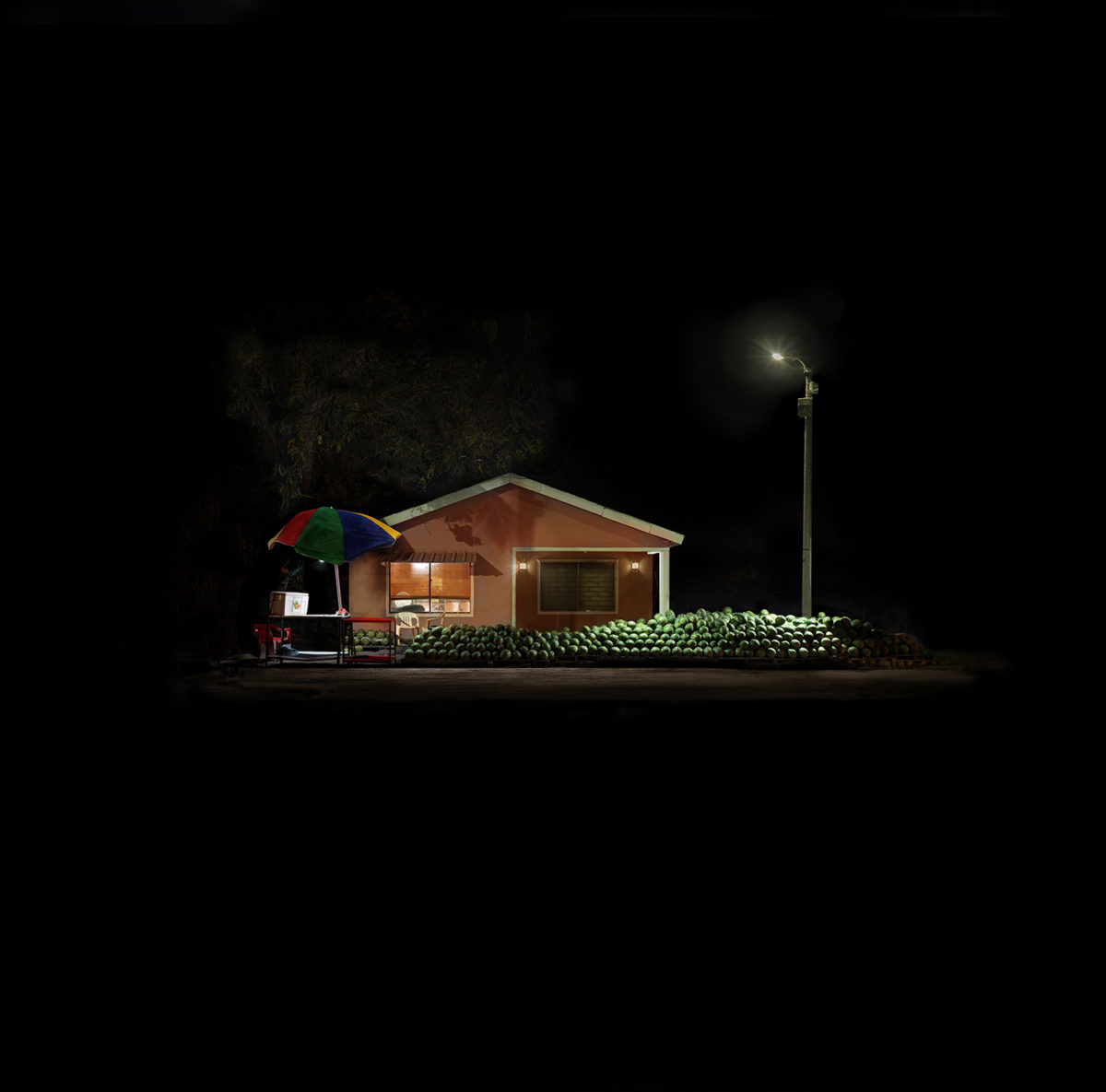From issue: #9 Alternative Narratives
Colombian artist Renata Bolívar studied photography at Efti School in Madrid and continued her education in photographic production and editing at ICP School in New York. Currently based in Bogotá, her latest work, Vestiges: Highway Nights, is ‘a way of seeing in the darkness of the evening’. The artist takes us into situations and scenes that were previously considered as high risk in Colombia.
The series has been exhibited at Feria del Millón (Colombia) and Photoville FENCE, USA. It will tour the USA in the forthcoming months. Bolívar is part of the collective Foto Feminas, where we first discovered her practice.

On Vestiges, Foto Feminas say:
‘In Vestiges, time and the beauty of the night are intertwined closely together. Each photo reveals a different structure lit through colourful flashes on desolate Colombian roads, creating an urban landscape in the darkness of the night. A concern to discover who inhabits these lonely territories is a question in the photographer’s mind. Beyond documenting these somewhat sculptural locations these photographs depict moments of roads that appear and disappear in vestige of the night.’
We spoke to Bolívar about her work:
Could you explain your practice and how you work in a few sentences?
My practice has been in photography all my life and mainly documentary photography but without having exercised it in this field. After extensive experience as a photographer in different fields that taught me everything about techniques and photo editing, a year ago I took myself to the biggest challenge in my life being a documentary artist through photography. I studied different editing techniques in New York and in Madrid I did a master’s degree in documentary photography. I wanted to mix these two techniques to translate what I wanted to tell through my camera. Colombia was the perfect setting to do it, a country in which we have experienced a series of violent and isolated situations.
What one thing has most helped to shape your practice?
The one thing that has most helped to shape my practice is never stop taking photos but with a purpose, I feel that it has been that purpose that has taken me to extraordinary places in my head where I am not satisfied and if it took me to the limit in demanding me as an artist

Why photography? Why the still image?
Photography has always surprised me, from the beginning to see how on a paper through chemicals you began to see an image taken weeks or days ago and remember that moment of desire. And then, as photography translates so many dialogues, as it allows itself to be manipulated to such an extraordinary narrative point with a simple shot, as it has become indispensable, I feel that photography allows itself to be discovered in many ways and that makes it fascinating and wonderful. I am an eternal romantic of the photographic image, and I believe that if you are able to tell a great story in one still image you have it all.
Where do your ideas begin?
To begin with, I feel that we are surrounded by visual references everywhere, as an artist it is your duty to pay attention to what’s going on around you but not letting it become a constant copy but rather serve as inspiration in order to recognize how you are and how you will speak as a visual artist. My ideas always come from the most basic, I believe in the great little stories, I believe that in everyday life there is what we do not see and what is needed to highlight so I create a discourse that the public feels identified with.
What’s next?
My next work is the continuation of vestiges, but now telling the story of road hotels devastated by Colombia. I found out how these hotels are used mainly by truckers and how their stories will twist to understand who inhabits those desolate places. So, soon, I will transport you to these fascinating territories that flash your eyes with their fascinating colors and their vestiges of the nights.
Learn more about Renata Bolíva here Read more Photography+ here
